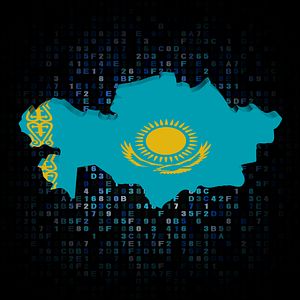Over the past two weeks, much of the domestic discussions on hacking in the United States have focused on Russian actors infiltrating various organs of the Democratic Party, from the Democratic National Committee to Hillary Clinton’s campaign. However, as researchers presenting this week at the Black Hat security conference in Las Vegas claim, Moscow may not be the only post-Soviet autocracy using new hacking techniques to push their own interests abroad.
As Reuters reported, it appears that hackers “believed to be working on behalf of Kazakhstan government officials” have directly targeted lawyers tied to the country’s most well-known exiled dissident, as well as a pair of exiled publishers. The hackers, per the researchers, attempted to “trick” recipients into uploading certain “spy software.”
While some of the details of the attempted hacking remain unknown – such as the identity of the Indian company involved with the presumed hackers – the victims are familiar names. Not only did the hackers target Peter Sahlas and Astolfo Di Amato, a pair of lawyers who have worked with exiled businessman Mukhtar Ablyazov and Ablyazov’s family, but they also went after publishers Irina Petrushova and Alexander Petrushov, who help run Respublika, an independent media outlet Astana has attempted to shutter for years. Indeed, in targeting those associated with Ablyazov and Respublika, this hacking appears to combine the pair of Astana’s foremost bogeymen.
While Ablyazov awaits potential extradition in a French jail, the hacking comes on the heels of a series of legal attempts the Kazakhstani government has led against Respublika over the past few years. Astana has tried, time and again, to state its claims against Respublika in American courts, attempting both to block the outlet and unearth the source for a series of damaging leaks. The Kazakh government has gone after Respublika, hoping to unearth the identity of the hackers who obtained and leaked sensitive government documents. (One of the more damning, or demeaning, revelations dealt with the government’s six-figure purchase of a series of letters from Napoleon Bonaparte; the paper has also reported on President Nursultan Nazarbayev’s move to store $1 billion of state revenue in a Swiss bank account.) However, U.S. courts have continued stymying Kazakhstan’s case. Most recently, an American judge noted that Kazakhstan’s claims “come dangerously close to a fishing expedition,” and denied Astana’s attempts to subpoena Facebook for information about users affiliated with Respublika.
Now, it appears Astana may have ratcheted its campaign against Respublika that much further. This isn’t the first time news of the Kazakhstani government’s expenditures on electronic surveillance have surfaced. However, as Eva Galperin, a policy analyst with the Electronic Frontier Foundation and one of the two researchers presenting at Black Hat this week told Reuters, “This is one of the very few campaigns where there is such a direct link between spying and physical danger.”
































